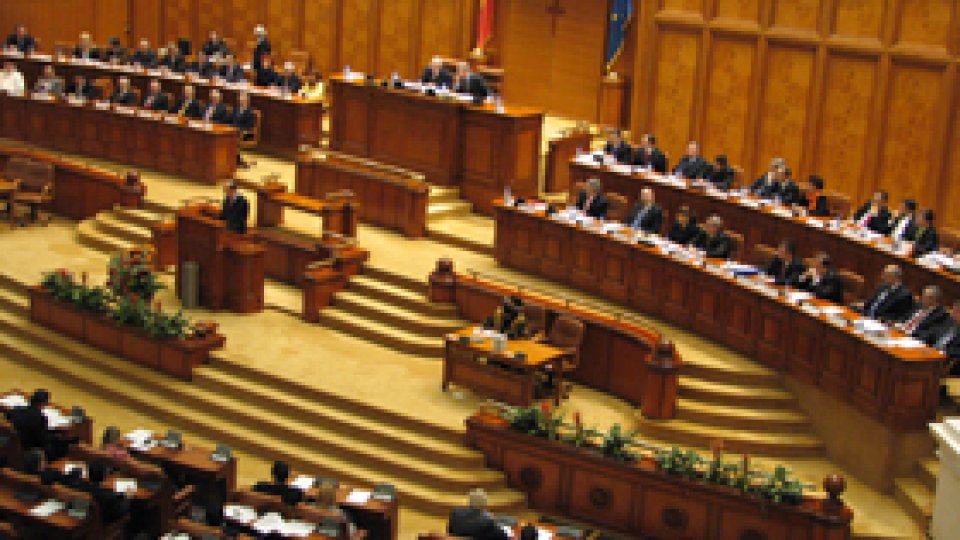Intensive Political Activities
The assessment visit which increasingly demanding IMF experts are paying to Bucharest has greatly overshadowed the domestic political convulsions.

01 Noiembrie 2010, 16:53
The IMF’s interlocutor, the government made up of the Liberal Democratic Party, the PDL, the Democratic Union of Ethnic Hungarians in Romania, the UDMR, and the National Union for the Progress of Romania, the UNPR, has survived the censure motion introduced by the social-democrat, liberal and conservative opposition.
The motion targeting the tough austerity measures taken by the government was voted by only 219 MPs, 236 votes being necessary for the cabinet of liberal-democrat Prime Minister Emil Boc to be brought down.
Supported by the vocal protests of some 30,000 unionists dissatisfied with the government’s economic and social policies, rallied before the Parliament building, the motion for the first time occasioned the boycott staged by the heads of the ruling coalition parliamentary groups.
To prevent any faulty voting, they would not let the majority MPs cast their votes. Though he thus stayed in office, with no vote in his favour, the Prime Minister did not conceal his satisfaction, believing that the failure of the motion was a victory of reason over “populism and demagogy” that the opposition had allegedly practiced.
On the contrary, for the opposition leaders, the fact that the ruling coalition MPs were forbidden to vote is the best proof that the rulers have gone into a flat spin.
Victor Ponta, the leader of the Social-Democratic Party, the PSD, and Crin Antonescu, the leader of the National Liberal Party, the PNL, hope to be more successful with the latest censure motion filed against the Education Law, for which the government assumed responsibility, which involves Parliament’s no-confidence vote.
Disapproved of by the teachers’ unions, but endorsed by a part of civil society blaming the Romanian educational system for its uncompetitive character, the law might be passed by the majority MPs who are teachers and professors.
Otherwise, pundits are not quite convinced that the opposition really wants the motion to be successful. The paper ROMANIA LIBERA, which is generally neutral, says that credited by opinion polls with 30% of the voting intentions, the PSD, “does not want the fall of the Boc government right now”.
The paper further says that the reason for that is simple,”a little time is still left until the 2012 elections, actually enough time for the popularity of the PSD to drop as much as that of the PDL in case the former now came to power.”
In half a year, the PDL’s popularity dropped from 35% to almost 15%. ROMANIA LIBERA further writes, “it is far more efficient for the PSD to stay as far as possible from the responsibilities of power and harass the PDL, so that it may rank as high as possible in the polls on the eve of the elections” and thus be able to negotiate the future government membership from a leading position with the PNL, credited with about 20%.
Consistently siding with the power, the paper EVENIMENTUL ZILEI carries a survey according to which the PDL will not drop below 15-20% either and, “ if 2012 sees economic recovery, then, the PDL will fare much better”.
An old connaisseur of Romanian political life, to which he has devoted a few books, professor Tom Gallagher from the University of Bradford in Great Britain estimates that President Traian Basescu and the government, “are far from covering themselves with glory through the way in which they understood to fight the crises taking Romania in their grip.
Their great luck has been the operetta opposition they are faced with - noisy selfish people hating each other”. However, Gallagher warns, “ Boc and Basescu will have to understand that such a luck does not last for ever; that is why, they had better urgently restore the communication channels with society, clearly disillusioned with an incapable government”.
(Radio România Internaţional, Serviciul în limba engleză).














